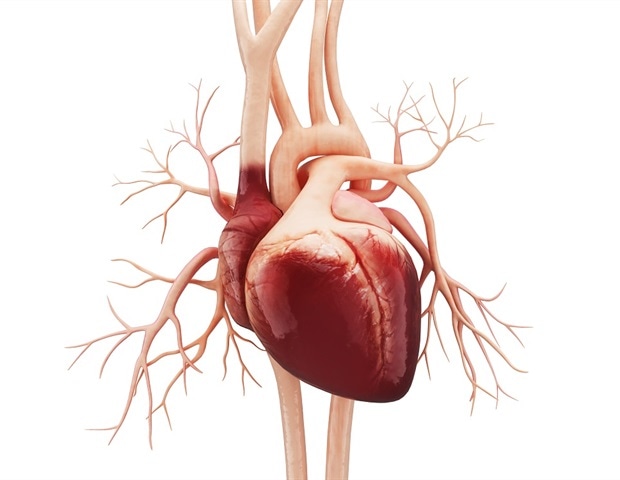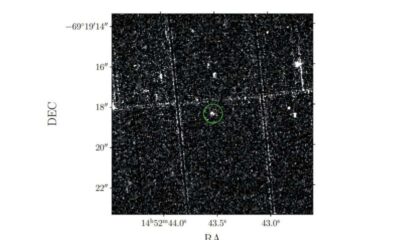Health
New Study Reveals Nontraditional Causes of Heart Attacks in Women Under 65

Research from the **Mayo Clinic** has found that many heart attacks in individuals under the age of 65, particularly women, are often triggered by factors unrelated to clogged arteries. This groundbreaking study, published in the **Journal of the American College of Cardiology**, challenges traditional views on the causes of heart attacks among younger populations.
The study analyzed over **15 years** of data from the **Rochester Epidemiology Project**. Researchers discovered that more than half of heart attacks in women under 65 stemmed from nontraditional sources, such as **spontaneous coronary artery dissection (SCAD)** and other conditions not linked to plaque buildup. This research provides the most comprehensive evaluation of heart attack causes in this age group to date.
Key Findings and Implications
While heart attack rates were lower in women than in men, the underlying causes in women were frequently misdiagnosed. SCAD, which predominantly affects younger, otherwise healthy women, was often mistaken for a typical heart attack caused by artery-clogging plaque. In fact, **47%** of heart attacks in women were attributed to atherosclerosis, compared to **75%** in men.
The study also revealed that heart attacks triggered by stressors, such as **anemia** or **infection**, were the second most common cause overall and had the highest five-year mortality rate of **33%**. This highlights the need for greater awareness and understanding of heart attack triggers that have historically gone unrecognized, especially among women.
Dr. **Claire Raphael**, interventional cardiologist at **Mayo Clinic** and the study’s first author, emphasized the importance of accurate diagnosis. “When the root cause of a heart attack is misunderstood, it can lead to treatments that are less effective—or even harmful,” she noted. Misdiagnosis of SCAD could result in unnecessary treatments, such as stent placements, which may increase the risk of complications.
Rethinking Heart Attack Diagnosis
The research underscores the necessity for healthcare professionals to reconsider their approach to diagnosing heart attacks in younger adults, particularly women. Dr. **Rajiv Gulati**, chair of the Division of Interventional Cardiology and Ischemic Heart Disease at Mayo Clinic, stated, “Clinicians must sharpen their awareness of conditions like SCAD, embolism, and stress-related triggers.” He urged patients to advocate for thorough investigations when they experience unusual symptoms.
The study also found that out of **1,474** heart attack cases, **68%** were due to typical plaque buildup, but nontraditional causes were significantly more prevalent in women. Notably, SCAD was nearly six times more common in women than men. The research concluded that unexplained heart attacks were rare, constituting less than **3%** of cases after expert review.
Understanding the causes of heart attacks is crucial, as it directly impacts treatment and recovery. “Understanding why a heart attack happened is just as important as treating it,” Dr. Raphael reiterated. “It can mean the difference between recovery and recurrence.”
This comprehensive study not only sheds light on the complex nature of heart attacks in younger populations but also opens the door for improved diagnostic practices and ultimately, better patient outcomes.
-

 Entertainment2 weeks ago
Entertainment2 weeks agoAnn Ming Reflects on ITV’s ‘I Fought the Law’ Drama
-

 Entertainment2 months ago
Entertainment2 months agoKate Garraway Sells £2 Million Home Amid Financial Struggles
-

 Entertainment1 month ago
Entertainment1 month agoKim Cattrall Posts Cryptic Message After HBO’s Sequel Cancellation
-

 Entertainment3 weeks ago
Entertainment3 weeks agoMasterChef Faces Turmoil as Tom Kerridge Withdraws from Hosting Role
-

 Entertainment1 week ago
Entertainment1 week agoWhere is Tinder Swindler Simon Leviev? Latest Updates Revealed
-

 Entertainment2 weeks ago
Entertainment2 weeks agoITV’s I Fought the Law: Unraveling the True Story Behind the Drama
-

 Entertainment1 month ago
Entertainment1 month agoAldi Launches Cozy Autumn Fragrance Range Ahead of Halloween
-

 Entertainment2 months ago
Entertainment2 months agoSpeculation Surrounds Home and Away as Cast Departures Mount
-

 Entertainment1 month ago
Entertainment1 month agoMarkiplier Addresses AI Controversy During Livestream Response
-

 Lifestyle4 weeks ago
Lifestyle4 weeks agoSummer Flags Spark Controversy Across England as Patriotism Divides
-

 Science2 months ago
Science2 months agoAstronomers Unveil New Long-Period Radio Transient ASKAP J1448−6856
-

 Health1 month ago
Health1 month agoWigan and Leigh Hospice Launches Major Charity Superstore












